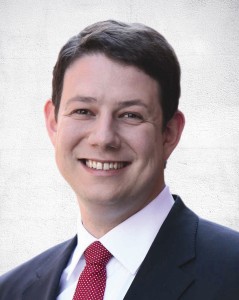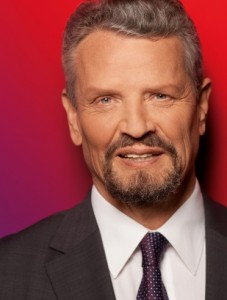JVG spoke with Gernot Erler
How can democracy and the territorial integrity of Ukraine be maintained?
The events of last week have shown very clearly that peace and stabilization can only succeed through dialog. This also applies to the situation within Ukraine, where all the regions must be involved in the political process. Equally important are direct talks between Russia and Ukraine, for example within the framework of the contact group proposed by Germany.
What are Russia’s and Putin’s interests?
I see motives both at the level of domestic policy and of foreign policy. The current Russian leadership has no intention whatsoever of allowing the regime change in Kiev to succeed. Russia has always viewed such changes brought about by grassroots movements as a threat. That was the case in 2003 in Georgia, in 2004 in Ukraine, and in 2005 in Kyrgyzstan. What’s behind this is the fear that something similar could also happen in Russia. And where foreign policy is concerned, Russia sees itself in geopolitical competition over the integration of Ukraine into Western European structures on the one hand and the Eurasian Union, which is in the process of being formed under Russia’s leadership, on the other. One initial building block of that union, the customs union, already exists between Russia, Belarus, and Kazakhstan. The integration of Ukraine is to follow. By virtue of its size alone, the country would form the core of any such alliance of states, together with Russia, and Ukraine’s participation would be critical for achieving integration within the post-Soviet sphere.
What policy should Berlin and the EU pursue with respect to Moscow?
Germany and the EU should continue to indicate their willingness to engage in dialog and remind Russia of its responsibility to contribute to a political solution in Ukraine. Any long-term deterioration of relations does not serve the interests of Germany, the EU, or Russia. This is the clear message that the political sphere in Europe is sending to Russia.
Which strategy do you advocate: sanctions or diplomacy?
To me, sanctions and diplomacy are not mutually exclusive – both can form part of a strategy to find a political solution to a crisis, and in fact they already do with respect to Ukraine. One thing is certain – the conflict in Ukraine can only be solved through dialog. Thus, talks like those held at various levels in recent weeks are the instruments of choice. However, the events of recent weeks have also shown that dialog alone will not achieve all that is necessary to stabilize and de-escalate the situation in Ukraine. That is why the EU imposed the first sanctions in early March and then reinforced them following the annexation of Crimea. A third phase of sanctions, which would also have serious consequences for economic relations, will be imposed if Russia takes steps to further destabilize Ukraine. I sincerely hope that the Russian leadership will recognize the disadvantages of such an approach and that stricter sanctions will not be necessary.
How can German-Russian relations be normalized again?
We need to re-establish a common understanding of how we wish to shape the German-Russian and European-Russian partnership in the future. We must agree on the goals and the path towards achieving them, reach consensus regarding the challenges we face, and define mechanisms to resolve differences of opinion and conflicts. One of the first steps, however, will consist of regaining the trust that has been lost. I hope that the Russian side will be sending us a clear message in this regard.
Is the Jewish Community in Ukraine threatened by anti-Semitic forces such as the Svoboda party?
We are monitoring the situation very closely where the rights of minorities in Ukraine are concerned. This applies especially to the Jewish community, more particularly in light of the xenophobic and anti-Semitic statements made by Svoboda representatives in the past. As far as we are aware, and based on what has been reported to us by Jewish organizations in Ukraine, the crisis has not entailed any increase in anti-Semitic incidents. However, we will continue to make it clear to the Ukrainian government that it must respect and protect the rights of all people in Ukraine. A country seeking political association with the EU must not tolerate xenophobia or anti-Semitism.
Gernot Erler (SPD), former Minister of State at the German Federal Foreign Office, is a member of the Committee on Foreign Affairs of the German Bundestag and the Coordinator for Intersocietal Cooperation with Russia, Central Asia and the Eastern Partnership Countries
_______________________________________________________________________________________
_______________________________________________________________________________________
Philipp Mißfelder:
 In recent times it has been widely discussed whether transatlantic Realpolitik towards Moscow is realistic. The underlaying question seems to misinterpret the transatlantic approach. By definition, Realpolitik relies on the application of power to pursue practical gains, disregarding ideological or ethical constraints. Frankly, this label describes the transatlantic approach accurately.
In recent times it has been widely discussed whether transatlantic Realpolitik towards Moscow is realistic. The underlaying question seems to misinterpret the transatlantic approach. By definition, Realpolitik relies on the application of power to pursue practical gains, disregarding ideological or ethical constraints. Frankly, this label describes the transatlantic approach accurately.
It is true that the United States and Europe are using some traditional tools to persuade Russia to withdraw from Crimea and to allow the Ukrainian people to reform their government and their state. These tools include economic sanctions, reaffirming alliances with NATO partners, and financial assistance to Ukraine. However, the transatlantic partnership is not relying on those tools alone, and they are not our most potent instruments for resolving the crisis.
In fact, both the transatlantic alliance and the Russian Federation remain committed to an ideological compass. It just so happens that, in Ukraine, our compasses point in different directions.
Within the transatlantic alliance, the idea of Europe – united, prosperous, free, and at peace – remains one of immense moral and emotional meaning. We thank the Ukrainian citizens for recently reminding us of it. The alliance also embraces an international order in which force cannot be used for territorial expansion against one’s neighbors.
But we would be wise to remember that the Russian Federation also has an ideological perspective, which differs from our own. At least some elements within Russia perceive a united Europe as a strong adversary rather than a strong partner. They view the liberal world order as a fig leaf for constraining the Federation, and western cooperation as merely a delaying tactic weakening their strategic position. They see NATO expansion as an offensive threat targeting Russia.
The Baltic States’ entrance into the alliance set a precedent for NATO members on Russian borders. This development is perceived quite differently in Moscow than it is in Brussels and Washington. After the collapse of the Soviet Union, western leaders reassured their Russian counterparts that German reunification and disbanding the Warsaw Pact would not lead to NATO enlargement in direction of Russia. Since then, however, the transatlantic alliance has expanded across Eastern Europe, and current Russian leaders view that expansion as both an existential threat and a violation of the earlier agreement.
While these perceptions may in fact be wrong from our point of view, some Russian leaders genuinely believe them. This is why diplomacy remains a paramount necessity. It offers the best opportunity for each side to better understand the other. Russia needs a strong offer from NATO to participate in their structures. A new cold war must be avoided.
The transatlantic alliance will continue to use a variety of diplomatic and economic measures to influence Moscow’s decisions, but we should be aware that these measures will not allow us to fulfill our objective. Rather, they will help create the conditions under which the Russian Federation and our alliance can have a candid conversation about core interests and our long-term relationship. We know that the Russian Federation will not quietly recede from Europe, and Russia probably does not expect Europe and the United States to abruptly forego the Black Sea region. Thus, all parties know that we will continue working with each other in the years to come, and we must develop a clear understanding for doing so. It pays off that the transatlantic alliance has acted cautiously so far.
There is some common ground between the alliance and the Russian Federation. As we remain resolutely committed to Ukraine, Eastern Europe, and the international order, Russia also has major interests in these areas. We must work to better understand those interests as well as their place in Russian decision-making. Realpolitik cannot help us here, but unrelenting diplomacy might.
So, to answer the question regarding the transatlantic approach to Moscow, the answer should be “no.” Realpolitik alone is not a realistic means to deescalate the crisis and restore a unified Ukraine. It can help contain the conflict and induce parties towards a diplomatic solution, but if it is the only measure, it will fall short. Thus, it is very good that the transatlantic alliance is not relying solely on this approach.
Europe – united, prosperous, free, and at peace – is an idea for the ages. Ukraine – united, prosperous, free, and at peace – is our current objective, along with preserving an international order defined by law, mutual respect, and territorial integrity. These ideas are the strongest tools in the transatlantic approach to Moscow, and we will continue to use them throughout this conflict.

